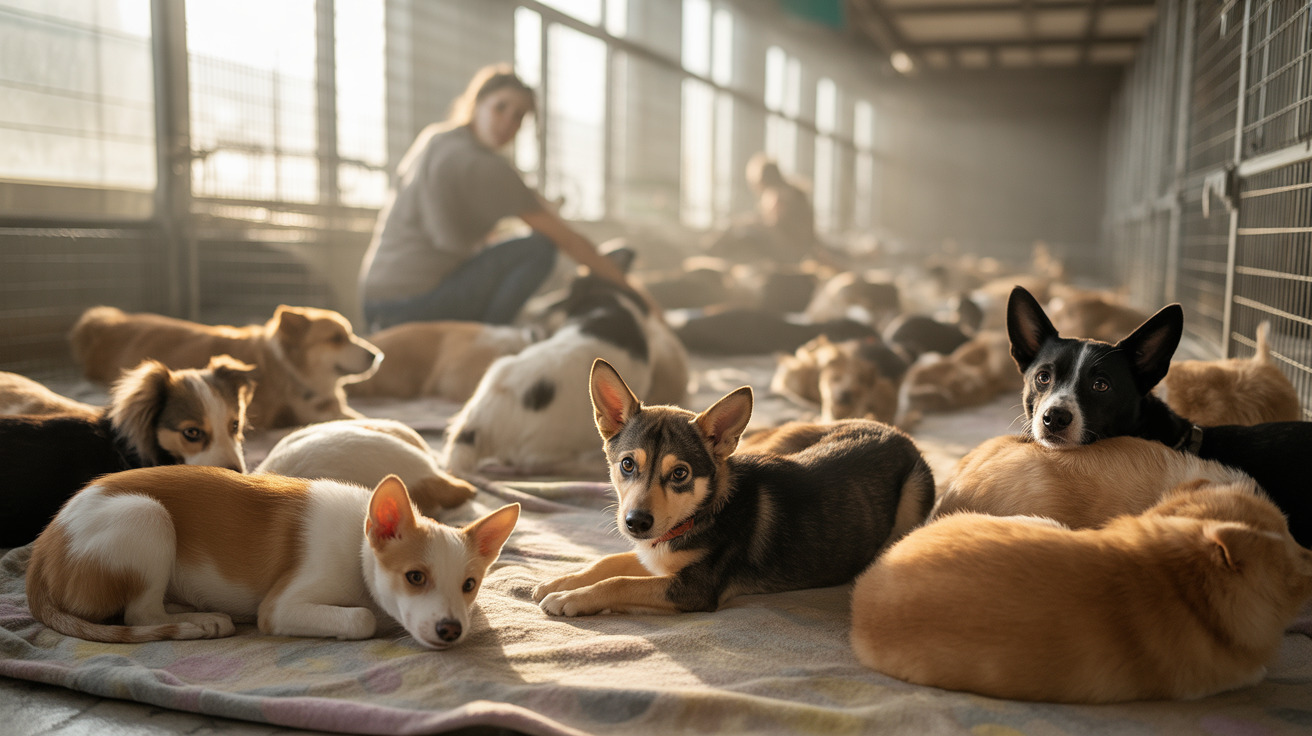Should You Get a Second Dog? A Comprehensive Guide
Adding another dog to your home is a big step. It sounds fun—twice the wagging tails and furry cuddles—but it’s not right for every family or every pup. Let’s dig into what you need to think about before making this decision.
Understanding Your Current Dog
First things first: consider your current dog’s personality and health. Some dogs thrive with a canine buddy, while others prefer being the only pet. Ask yourself if your dog enjoys interacting with other dogs or tends to shy away—or worse, show signs of aggression or anxiety around them. If your dog has behavioral issues, like excessive barking or resource guarding, bringing in another pet could make things more complicated. It’s wise to address any training or behavioral problems before expanding your pack.
Your Time, Energy, and Resources
Caring for two dogs isn’t just double the love—it’s also double the responsibility. You’ll spend more time feeding, walking, training, and playing with each pet. Each dog may have unique physical and emotional needs that require individual attention. Consider if you have enough energy and time in your daily routine to meet those needs without feeling stretched thin.
- Feeding two dogs separately
- Walking them (sometimes together, sometimes apart)
- Training sessions for both—individually and as a pair
The Cost Factor
Your wallet will feel the difference too. Two dogs mean increased expenses for food, veterinary care (including unexpected emergencies), preventative medications, grooming appointments, toys, beds—the list goes on. The commitment isn’t short-term either; you’re looking at potentially 10-15 years of care for each pet. If you anticipate major life changes (like moving or having children), factor those into your long-term plans.
Space and Environment
Your home should comfortably accommodate more than one dog. Each pup needs their own bed, food bowl, water dish, and toys to minimize competition (and squabbles). Make sure there are spots where each dog can retreat for some alone time if needed—dogs value their personal space too! During the initial adjustment period (and sometimes beyond), you’ll need to supervise interactions closely and may even have to separate them when unsupervised until you’re confident they get along.
Choosing the Right Companion
If you’ve decided you have the resources and desire for a second dog, compatibility is key. Think about:
- Age: A senior may not appreciate a bouncy puppy.
- Size: Big differences can cause playtime mishaps.
- Sex: Opposite-sex pairs sometimes get along better.
- Temperament: Match energy levels so neither feels overwhelmed or bored.
The individual personalities matter most—some combinations just click better than others.
The Introduction Process
A thoughtful introduction sets everyone up for success. Plan that first meeting on neutral ground (like a park) so neither dog feels territorial. Keep both on loose leashes and watch their body language closely—look for relaxed postures rather than stiff bodies or growling. Don’t force interaction; let them approach at their own pace. If things get tense, separate them calmly and try again later.
Once home:
- Feed dogs separately; pick up bowls after meals.
- Remove favorite toys until they’re comfortable together.
- Supervise all play during the adjustment period.
You’ll want to continue spending one-on-one time with each dog daily so no one feels left out or jealous.
The Benefits of Two Dogs
- Built-in companionship for both pets
- Increased mental stimulation and exercise opportunities
- The joy of watching canine friendships develop
An older dog might become more active with a new friend around—and sometimes helps teach the newcomer about household routines. But don’t expect a second dog to fix separation anxiety or major behavioral problems in your first; it could even make those worse if not managed carefully.
The Challenges You Might Face
- Bigger bills for food and vet care
- Tougher logistics when traveling or arranging pet care
- The possibility that the dogs won’t bond as hoped
You’ll need patience—and sometimes help from trainers or veterinarians—to navigate any bumps in the road.
Key Questions Before Getting a Second Dog
- Does my current dog enjoy being around other dogs?
- Is my family ready for the extra commitment?
- Do we have enough space and money?
- Is this timing right considering jobs, kids, my dog's age/health?
- Can I devote time to training both individually?
- If things don’t work out immediately, am I prepared to be patient?
If you answer yes to most of these—and feel confident about managing two unique personalities—a second dog could bring more love (and fun) into your life!





